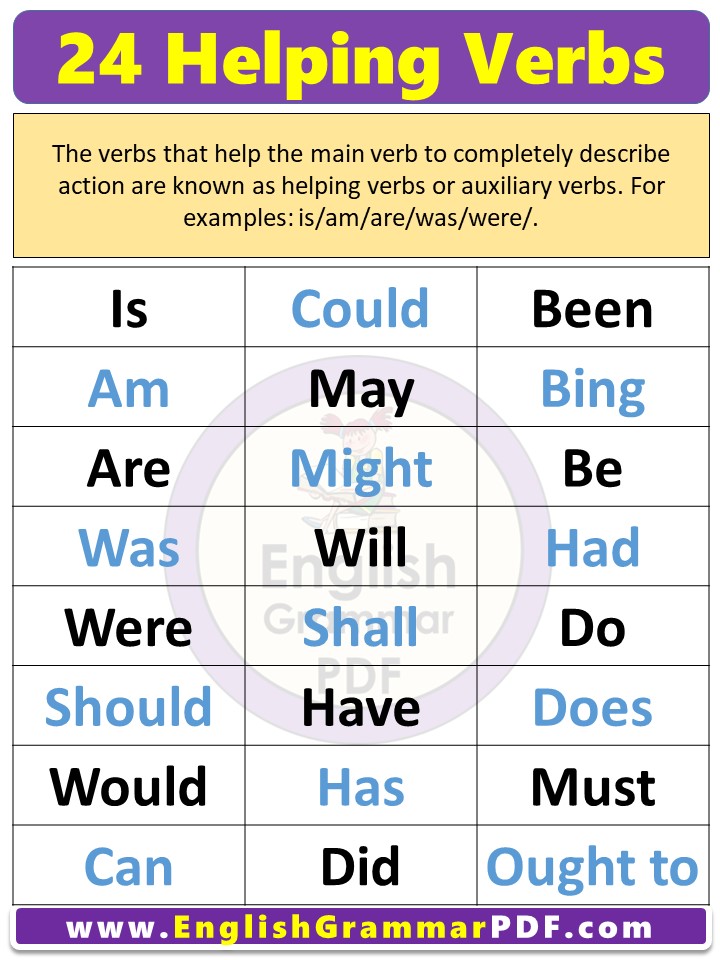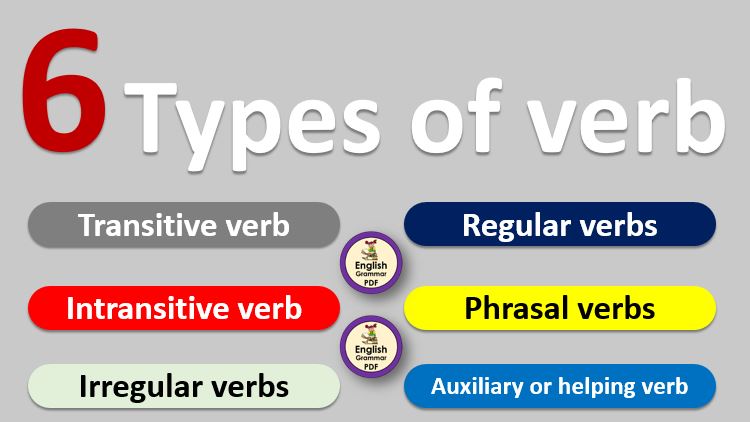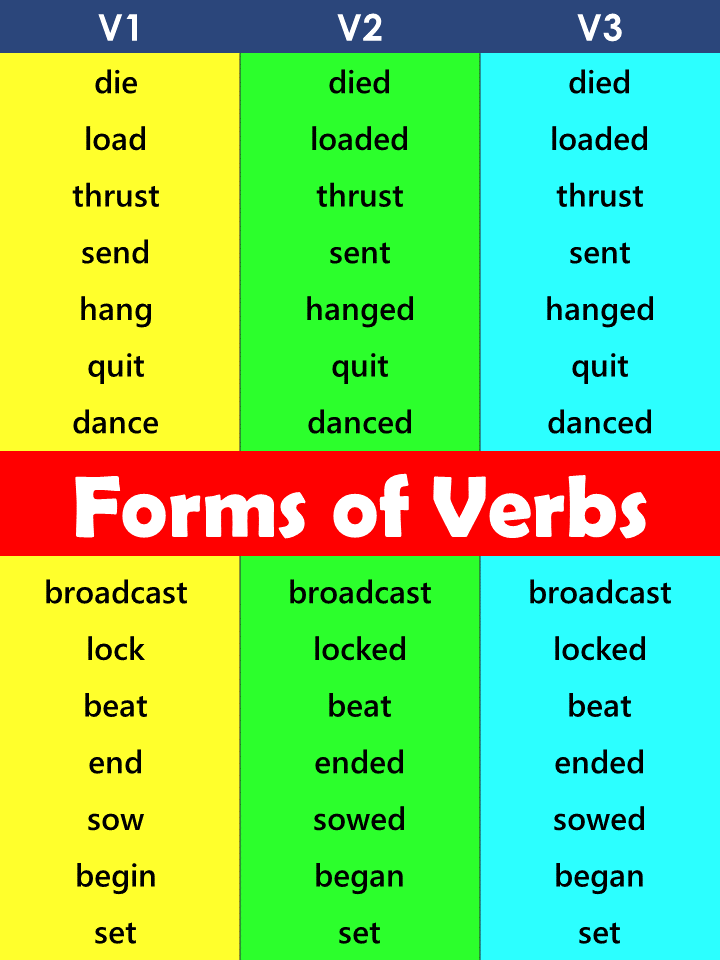24 Helping verbs, Definitions and examples in English

What are helping verbs or auxiliary verbs?
The verbs that help the main verb to completely describe action are known as helping verbs or auxiliary verbs. For examples: is/am/are/was/were/. All of these are helping verbs in English.
Helping verbs with definition and Examples
- Is
- Am
- Are
- Was
- Were
- Should
- Would
- Can
- Could
- May
- Might
- Will
- Shall
- Have
- Has
- Did
- Been
- Bing
- Be
- Had
- Do
- Does
- Must
- Ought to
Uses of helping verbs in English
Is, am, are
These helping verbs are used in present continuous tense. The examples of these helping verbs are.
Ali is playing football with his son.
I am the owner of this mini restaurant.
You are very genius person. You have solved this problem within minutes.
Was, were
These helping verbs are used in past continuous tense.
For example:
The boy was drinking water in hot summer.
They were bringing the furniture from the shop.
Can, could
These verbs are used to show the ability to do or not anything. Could is the past tense of can.
For Example:
Can you give a glass of cold water?
I could not come to school due to illness.
Should
This verb has no obligation. It is used to express some advice.
I should go there because she was waiting for me.
Would
It shows that you have to do something in future.
She would perform this action to save her baby.
Must
It shows strictness in some action. It is powerful than should.
You must be at your home, this is not the time to wander in market.
Do
It shows to perform an action.
I will do this work tomorrow.
Did
It shows an action that is happened in past.
He did not want to be a doctor he is a good modal.


